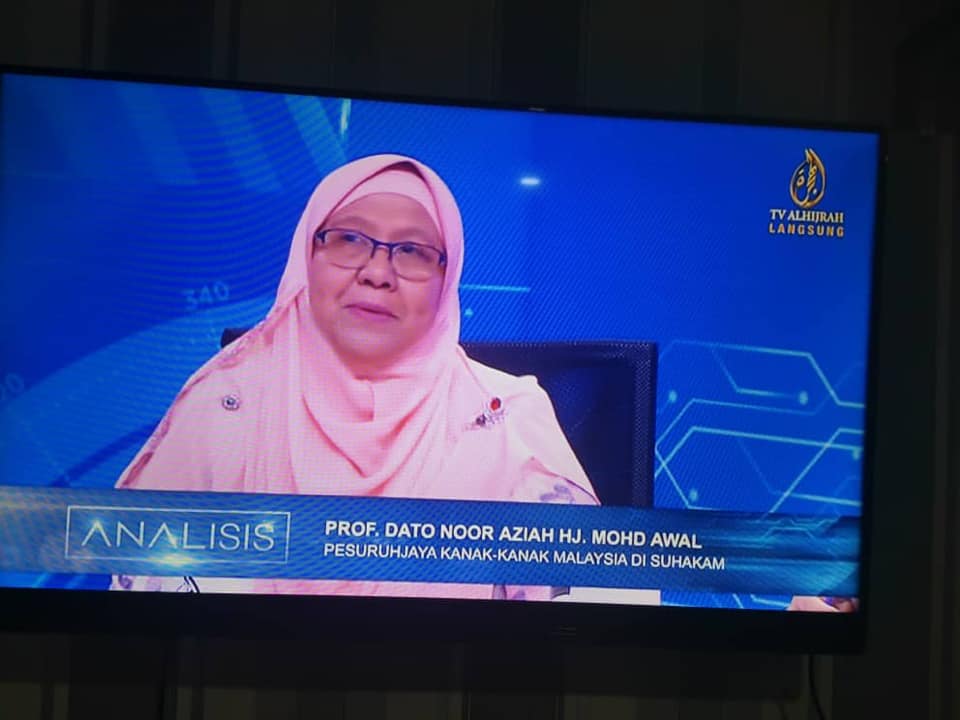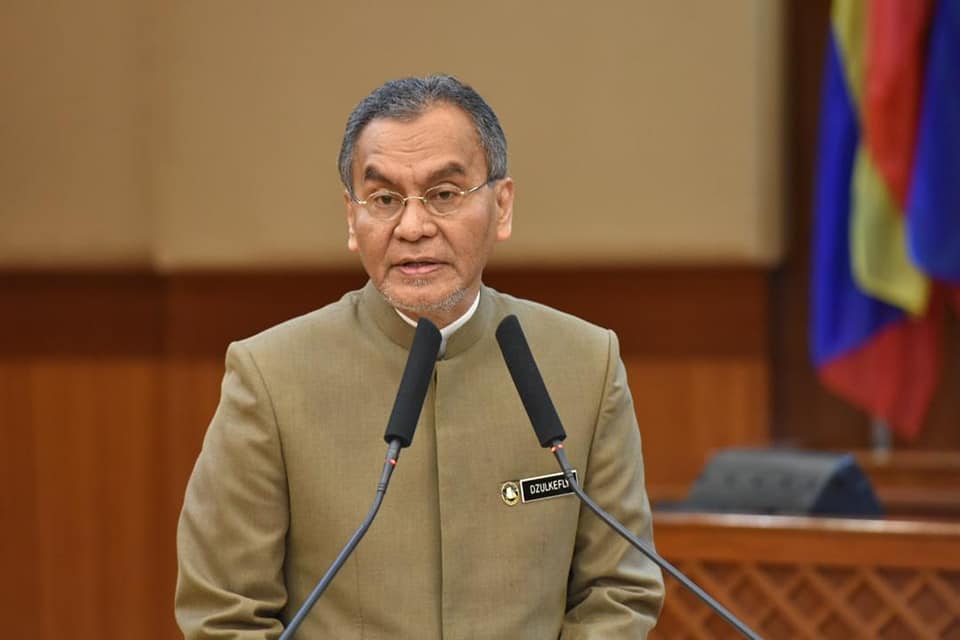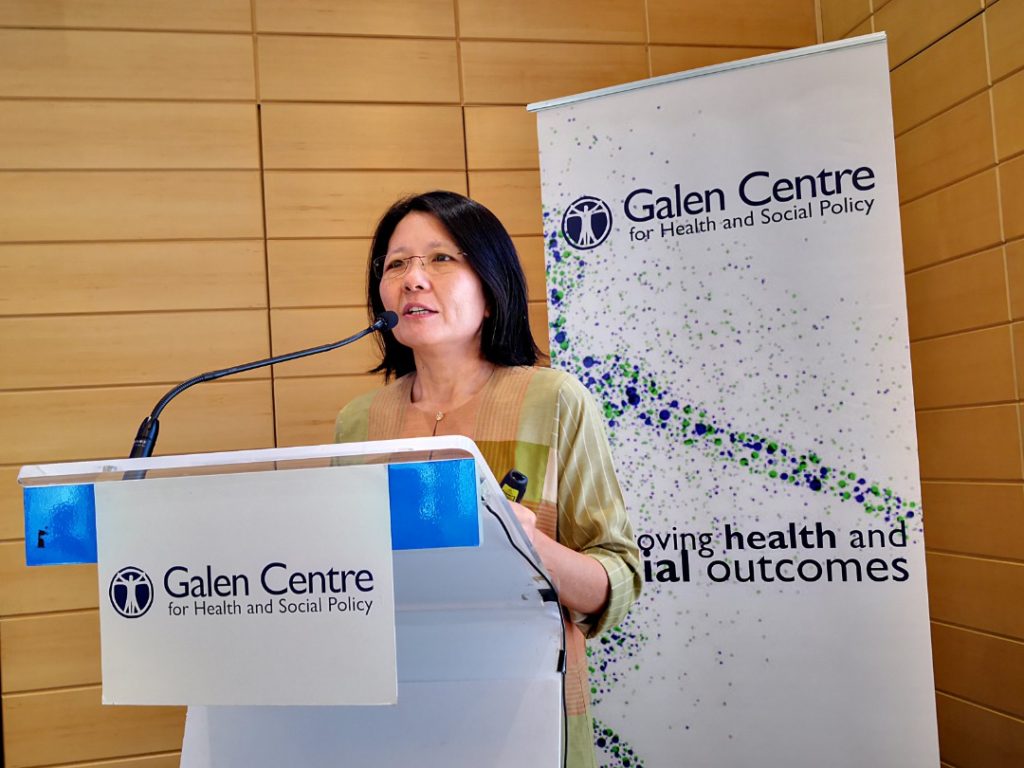KUALA LUMPUR, July 10 — Advocates have questioned when the pneumococcal vaccine will be listed in the National Immunisation Programme (NIP) that was originally scheduled last month by the previous government.
Suhakam children’s commissioner Noor Aziah Mohd Awal said she had written to Health Minister Dr Adham Baba a few weeks ago, requesting that the new Perikatan Nasional (PN) government make the vaccine against pneumococcal disease compulsory for all children in Malaysia.
“I reminded him that the Pakatan Harapan (PH) government has allocated RM60 million (in Budget 2020 announced last year) for vaccination, then they should make it compulsory and proceed with the implementation of it,” Noor Aziah told CodeBlue in an interview.
Then-Deputy Health Minister Dr Lee Boon Chye announced last January that the government has allocated RM60 million for the pneumococcal vaccination programme, estimated to start in June, that aims to provide free jabs for children born this year.
But after the Covid-19 pandemic broke out in January, the PN government has yet to announce the listing of the pneumococcal conjugate vaccine (PCV) in the NIP that would make it mandatory.

Noor Aziah stressed that immunising a child was not only for the child’s own protection, but to protect other children who are unable to be vaccinated, such as those born weak or handicapped, through herd immunity.
“If these children mix, and you don’t have immunisation and you have diseases, you’re going to infect others. So to me, it’s a public disturbance. You are causing trouble not only to yourself but also to others.”
The children’s commissioner from the national human rights body proposed making children of vaccine-hesitant parents wards of the court or care given to Protectors, which means social workers can get a court order to immunise the child against the parents’ wishes.
The PCV protects against pneumococcal disease caused by the Streptococcus pneumoniae bacteria (called pneumococcus). The World Health Organization (WHO) estimates that pneumococcal disease kills about one million children globally every year. According to the US’ Centers for Disease Control and Prevention, pneumococcus is the most common cause of pneumonia, bloodstream infections, meningitis, and middle ear infections in young children.
Immunise4Life programme chairman Dr Zulkifli Ismail said he believed the paediatric community would urge the new government to keep PH’s election promise on listing the pneumococcal vaccine in the NIP.
“The money has been allocated and although the pandemic may have used up some of the money, this vaccine should still be a part of our National Immunisation Programme (NIP),” Dr Zulkifli told CodeBlue in an interview.
“We have cases of pneumococcal pneumonia among our children here and with the vaccine, we should be able to reduce our cases of pneumonia in general and also its complications. “
“In countries that have introduced the pneumococcal conjugate vaccine, the incidence of all-cause pneumonia dropped, just as pneumococcal pneumonia.”
Dr Zulkifli Ismail, Immunise4Life chairman
“We have been saying that we need the vaccine in our NIP since 2005 and it’s already been 15 years since the vaccine first came to our shores for the private market. At present, the private market coverage of PCV is only about 15 to 18 per cent of the total birth cohort of half a million (450,000-500,000) a year. Children in poor and marginalised families are not getting it,” Dr Zulkifli added.
The consultant paediatrician pointed out that low-income and middle class families cannot afford to spend RM250 or more per dose for the pneumococcal vaccine.
He also stressed the importance of giving scheduled vaccines to all children even during the Covid-19 pandemic, noting that cases of infectious diseases fell during the Movement Control Order (MCO) when children stayed at home, but may increase once children return to school.
“With the pneumococcal vaccine, it will prevent and reduce the incidence of pneumonia caused by this bacteria,” Dr Zulkifli said, adding that the PCV uptake in the private market dropped in the period of February to April during the partial lockdown, but recovered in May.

Former Health Minister Dzulkefly Ahmad said pneumococcal vaccination was a primary health care measure and a cost-effective preventive strategy in managing the incidence of invasive pneumococcal disease among young children.
He cited a study by the Malaysian Paediatric Association and the Paediatric Department of the Women and Children’s Hospital Kuala Lumpur that found the full inclusion of the PCV13 vaccine in Taiwan’s NIP had resulted in a 69 per cent reduction of invasive pneumococcal disease in children below five years from 2012 to 2017.
The joint research by the Ministry of Health (MOH) and the Malaysian Paediatric Association also cited a local study by Shafie et al in 2019 that estimated US$119.3 million overall nett annual savings in direct and indirect medical costs over five years from introducing the PCV13 vaccine in the NIP. Shafie’s research also projected, over five years, decreases of 1,920 invasive pneumococcal disease cases, 58,677 pneumonia cases, and 792 deaths.
Fewer missed school days, reduced long-term disability that affects a child’s ability to learn and subsequent capability of getting high-pay jobs as an adult, fewer missed work days, reduced financial burden on families resulting from severe invasive pneumococcal disease, and greater economic growth from continued productivity were among the benefits cited for pneumococcal vaccination.
The PCV10 vaccine protects against 10 serotypes, or strains, of the pneumococcus bacteria. The more expensive PCV13 vaccine covers the same pneumococcal strains as PCV10, plus an additional three serotypes — 19A, 6A, and 3. Serotypes 19A and 6A were among the most common pneumococcal serotypes in Malaysia; serotype 19A is also very resistant to antibiotics. MOH has yet to announce which pneumococcal vaccine it will list in the NIP.
“l’m equally anxious because this is about one new programme that the last PH [government] wanted to embark, especially as it was one of our promises in the PH manifesto,” Dzulkefly told CodeBlue.
“Understandably, the PCV immunisation program has unfortunately taken a backseat in the era of Covid-19. But no one would dare argue that vaccination against preventable diseases shouldn’t be in the front line, as it is the only proven line of defence.
“Now that we are having a slight breather from Covid-19, it will be good to remind the Ministry to detail out their plan moving forward.”
He stressed that the pneumococcal vaccine is necessary to protect children from pneumococcal disease, especially high-risk Orang Asli, rural Malays, Indians in the estates, native Bumiputera in Sabah and Sarawak, and the bottom 40 per cent (B40), including the urban poor.

Chan Li Jin, founder of online health information centre MyHealth Outreach, proposed that the government start pneumococcal vaccination for high-risk groups like premature babies or children born with congenital conditions, if funding is unavailable to immunise this year’s entire cohort during the coronavirus outbreak. The government can kick off pneumococcal vaccination in one state first, perhaps Selangor, rather than scrapping the programme entirely.
“Previously, some hospitals spent their own budget to buy it. The government can reimburse hospitals for cases which have been identified as high-risk that they have spent on getting PCV for that patient,” Chan told CodeBlue.
The health advocate stressed that vaccinations are meant to prevent disease so that the health care system is not burdened with vaccine-preventable infections.
“Diseases don’t stop, with or without the lockdown or Covid-19,” she said. “If you stop immunising, you’ll find people getting sick with vaccine-preventable diseases.”








